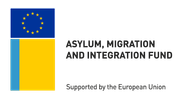Assessments of the security situations in Iraq and Afghanistan updated
3.7.2020 08:46:20 EEST | Maahanmuuttovirasto | Press release
The guidelines of the Finnish Immigration Service remain mainly unchanged. The security situation in Afghanistan continues to be unstable. There are still several areas where people cannot be expected to return because of the security situation. These areas currently include:
- the Helmand province
- the districts of Tirinkot, Dehrawud and Chora in the Uruzgan province
- Achin, Chaparhar, Batikot, Pachieragam, Dehbala, Shinwar, Sherzad, Muhmand Dara and Khogyani in the Nangarhar province
- the districts of Ghorak, Khakrez, Maiwand, Nesh and Shah Wali Kot in the Kandahar province.
When the level of violence is estimated to be extreme in a certain area, everyone residing in that area are considered to be in danger. In that case, it is possible to grant a person subsidiary protection status solely on the basis of his or her place of residence.
In Iraq, there are currently no areas where the level of armed violence would be so extreme that everyone returning to the area would be at risk of being subjected to armed violence. Asylum seekers’ need of international protection is always assessed individually.
The security situation in Iraq continues to vary, and there are several areas where the level of violence is high. These areas include, for example, the districts of Mosul and Sinjar in the Nineveh province and the districts of Hawija and Daquq in the Kirkuk province.
Additionally, the Finnish Immigration Service now considers that the security situation in the province of Diyala in Iraq has deteriorated, and the risk of armed violence is high in three of its districts.
Developments in the security situations in key countries are monitored continually
The Finnish Immigration Service launched a project in autumn 2019 for developing its reporting practices concerning the country of origin information required for asylum decision-making as well as its practices for drawing up implementation instructions, in other words country guidelines.
“Country guidelines for decision-making can be drawn up regionally even more flexibly than before when the security situation changes,” says Project Manager Sanna Ristimäki.
The project Sopu has been granted support from the European Asylum, Migration and Integration Fund (AMIF).
The Finnish Immigration Service produces information in particular about the countries from which asylum seekers, quota refugees and other immigrants come to Finland.
The Finnish Immigration Service acquires information about countries in many ways. In addition to fact-finding missions, the sources include the United Nations High Commissioner for Refugees (UNHCR), research institutions and the country information services of other countries as well as their networks of researchers.
In 2020, the largest number of new asylum seekers has arrived from Turkey, Iraq and Russia. The total number of asylum applications submitted this year is 1,591, of which 572 were first applications (situation on 29 June 2020).
FACTS: Country of origin information is an important part of asylum decision-making
- An asylum seeker’s need of international protection is assessed individually when the asylum decision is made. The country information that is relevant for the particular applicant is taken into account in the asylum decision.
- The situation of an asylum seeker is not assessed solely on the basis of country information. Each applicant’s individual situation is examined to find out whether the person is at risk of being subjected to persecution or serious harm if he or she returns to his or her home country.
- If the level of violence is estimated to be extreme in a certain area, everyone residing in that area are considered to be in danger. In this case, a person can be granted subsidiary protection status on the basis of his or her place of residence.
- The level of violence caused by an armed conflict is assessed regionally, on a scale from low to extremely high.
- Factors that affect the assessment include the number of civilians killed or injured, the way the violence is manifested, the number of internally displaced persons, the nature of the conflict and its geographical sphere of influence and the everyday living conditions of the local population.
Summaries of the general situation in Iraq and Afghanistan can be found on our website (in Finnish).
Keywords
Contacts
Sanna Ristimäki, Project Manager, Legal Service and Country Information Unit, email: firstname.lastname@migri.fi, tel. +358 295 433 722
Links
About Maahanmuuttovirasto
 Maahanmuuttovirasto
MaahanmuuttovirastoPL 10
00086 Maahanmuuttovirasto
Puh. 0295 430 431 (vaihde/switchboard))http://www.migri.fi
The Finnish Immigration Service is a decision-making organisation in matters related to immigration, asylum, refugee status and citizenship and maintains the reception system.
Subscribe to releases from Maahanmuuttovirasto
Subscribe to all the latest releases from Maahanmuuttovirasto by registering your e-mail address below. You can unsubscribe at any time.
Latest releases from Maahanmuuttovirasto
Maahanmuuttovirasto arvioi uudelleen Iranin turvallisuustilannetta – turvapaikkahakemusten päätöksenteko keskeytetään osittain5.2.2026 11:00:09 EET | Tiedote
Iranin turvallisuustilanne on muuttunut suurten mielenosoitusten ja turvallisuusjoukkojen väkivallankäytön myötä, minkä vuoksi päätösten tekeminen iranilaisten turvapaikkahakemuksiin keskeytetään osittain.
Maahanmuuton tilastot 2025: Maahanmuutto Suomeen laskussa30.1.2026 10:00:27 EET | Tiedote
Monien maahanmuuton eri lupatyyppien hakemusmäärät ovat laskussa. Niin työntekijöiden, opiskelijoiden kuin kansainvälisen suojelunkin hakemusten määrät ovat vähentyneet. Perheenjäsenten osalta hakemusmäärissä on ollut puolestaan pientä kasvua.
Asiakaskysynnän kasvu ja henkilöstöresurssien väheneminen vaikuttavat Maahanmuuttoviraston asiakaspalveluun23.1.2026 11:24:29 EET | Tiedote
Valtiotalouden säästöt osuvat monin tavoin Maahanmuuttoviraston toimintaan. Viraston tulee suhteuttaa toimintaansa pieneneviin resursseihin. Henkilöstön määrän pieneneminen johtaa osaltaan palveluiden heikentymiseen.
Ulkomaalaislaki muuttuu pysyvän oleskeluluvan osalta 8.1.20268.1.2026 12:00:28 EET | Tiedote
Pysyvän oleskeluluvan saamisen edellytyksiä tiukennetaan 8.1.2026. Lakiin lisätään uudet kotoutumisedellytykset pysyvän oleskeluluvan hakijoille.
Kansalaisuuslaki muuttuu 17.12.202517.12.2025 11:00:21 EET | Tiedote
Suomen kansalaisuuden saamisen edellytyksiä tiukennetaan. 17.12.2025 voimaantulevat lakimuutokset vaikuttavat toimeentuloa ja nuhteettomuutta koskeviin edellytyksiin sekä kansalaisuuden menettämiseen. Lakimuutos koskettaa kaikkia 17.12.2025 tai sen jälkeen jätettyjä kansalaisuushakemuksia.
In our pressroom you can read all our latest releases, find our press contacts, images, documents and other relevant information about us.
Visit our pressroom
